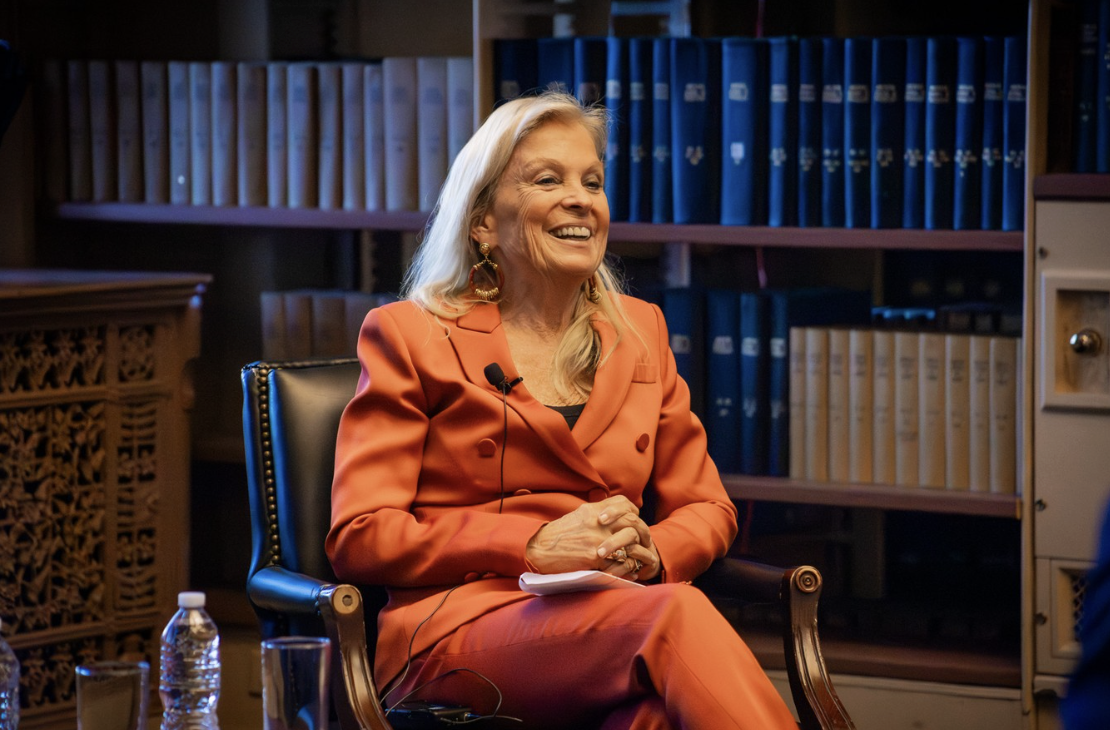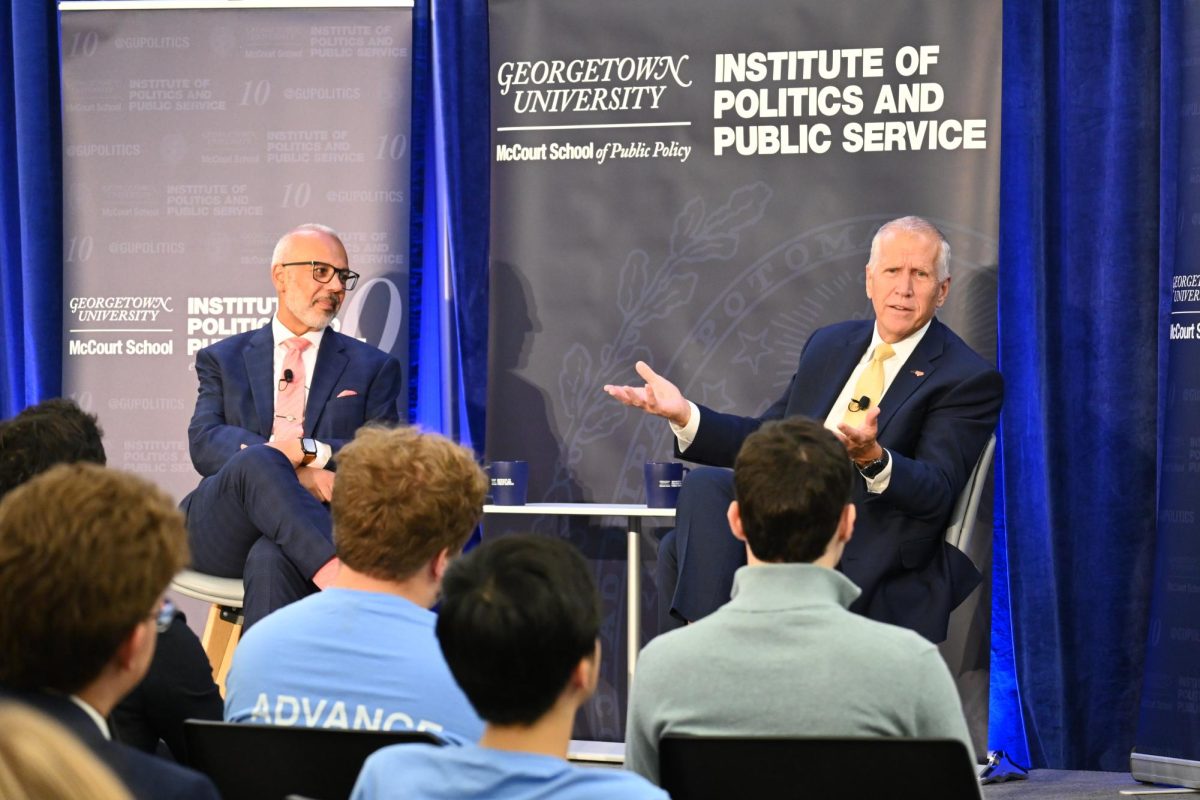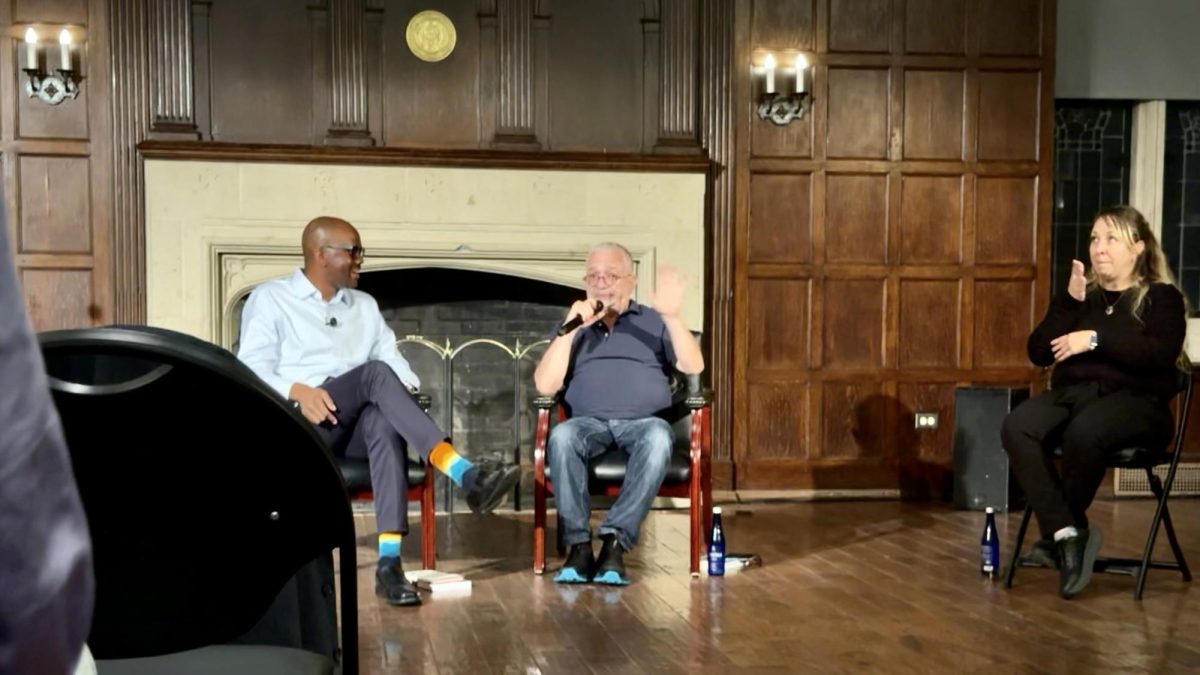A panel of medical professionals and cancer survivors encouraged physicians to prioritize compassionate care for patients and their families during and after cancer treatment during the fourth annual Edward M. Kovach Cura Personalis Endowed Lecture in Georgetown University’s Riggs Library Jan. 9.
The Lombardi Comprehensive Cancer Center, a cancer treatment and research organization that provides access to clinical trials at MedStar Georgetown University Hospital, sponsored the event along with the Kovach family to stimulate conversations around holistic caregiving and to honor physicians who embody cura personalis, the core Jesuit value of care for the whole person. The lecture series was established in honor of Edward M. Kovach (CAS ’60, LAW ’63), a labor lawyer and former pancreatic treatment patient at the Lombardi Center.
Karen Knudsen, the former chief executive officer of the American Cancer Society, said cancer survivorship is especially relevant considering one in two men and one in three women are likely to receive a cancer diagnosis in their lifetime.
“So if you just simply do the math, that is every family,” Knudsen said at the event. “So it’s incumbent upon us to understand that the way that we practice medicine, the way that we handle cancer prevention, detection and cure, impacts not just the individual but the whole family and indeed, the whole person.”
Nicole Faison, a business operations officer and cancer survivor, said her experience reflects the wide-ranging impact of a cancer diagnosis and the associated treatment.
“It’s not just you that goes through the cancer but your whole family and friends that go through it too,” Faison said at the event. “I had the cancer, but when I got the diagnosis, I wasn’t thinking about me. I was like, ‘Oh my goodness, how’s my family gonna react to this diagnosis? Is my mother gonna have to bury me?’”
“Even though I’m coming up on the fourth year of survivorship, I still have those moments of anxiety about the five-year mark and continuing my remission,” Faison said.
Nina Kadan-Lottick, an oncology professor and director of the Survivorship Research Initiative at the Lombardi Center, a program that does research related to optimizing cancer survivorship rates, said a patient’s quality of life must take priority at all stages of treatment and beyond.
“A patient’s needs change at different stages — early in diagnosis, during treatment and off therapy,” Kadan-Lottick said at the event. “They make a difference in terms of not only how one feels and how one’s emotional well-being is, but also whether you survive the cancer and then later whether you will develop other health problems or not.”

Patrick Jackson, the chief of the division of general surgery at MedStar Georgetown University Hospital, received the annual Wooden Spoon Award, given by the Kovach family to honor physicians who emphasize cura personalis in their caregiving, for his commitment to the welfare of his patients.
Alexandra Kovach du Pont, Kovach’s daughter, said the way patients like her father are treated in the hospital has a big effect on their wellbeing.
“The way that my dad was treated in the hospital made a really big difference in his spirit,” du Pont said at the event. “A 60-second story from his week wasn’t small talk, it was his less scientific way to measure how he felt. The minute he felt like a patient and not a person, the mountain got harder to climb.”
“One thing that really stands out about Dr. Jackson are the patient reviews he has,” du Pont said. “All of them use words like explained well, listened, compassion, communication, empathy, never felt like he was rushed. Clearly, these patients feel seen and heard.”
Faison said the most helpful thing for her quality of life during her cancer treatment at Lombardi was the support she received from her doctors.
“When I walked into Lombardi, every doctor was focused on survivorship as the goal, and they offered an amazing support system — everyone in that hospital became my family,” Faison said. “It wasn’t ‘you have a diagnosis of cancer,’ but ‘you have a diagnosis of hope and a quality life.’”







